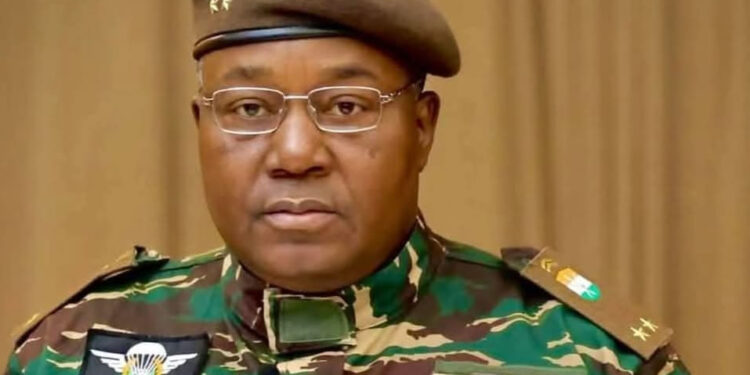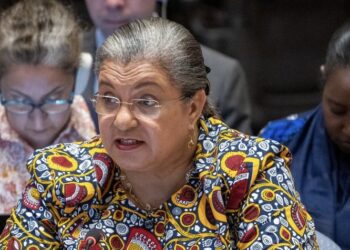The head of Niger’s military junta, General Abdourahamane Tchiani, officially assumed the presidency on Wednesday under a controversial new governance framework that effectively replaces the nation’s constitution. The transitional arrangement grants him executive authority for up to five years, marking a significant consolidation of military rule.
In a series of decisive moves, Tchiani was promoted to the rank of army general and immediately dissolved all political organizations. These actions reinforce his authoritarian hold on Niger, which began when he overthrew the democratically elected government in July 2023.
The extended transition period directly challenges demands by West African leaders for a swift return to civilian governance. Officials from the Economic Community of West African States (ECOWAS) had previously condemned the junta’s initial three-year proposal as unacceptable.
Speaking at the adoption ceremony in Niamey, government secretary Mahamane Roufai confirmed the five-year transitional period would take immediate effect. The new charter, drafted by a junta-backed national conference, provides legal cover for military rule while delaying democratic elections.
If maintained, the timeline would keep Tchiani in power until at least 2030 – a pattern increasingly common among Sahel nations where juntas have extended transitional periods indefinitely. Neighboring Mali and Burkina Faso have followed similar trajectories after their own coups.
Notably, the charter imposes restrictions on foreign military presence, requiring a national referendum before establishing foreign bases. However, it grants the presidency emergency powers to bypass this condition – a clause likely aimed at preserving Niger’s new security partnership with Russia.
The junta severed ties with Western allies last year, expelling French and American forces before turning to Moscow for military cooperation. This realignment has raised concerns about growing Russian influence in the region.
ECOWAS responded to the 2023 coup with severe economic sanctions and threats of military intervention, prompting Niger to withdraw from the bloc alongside Mali and Burkina Faso. The three nations have since formed a mutual defense pact opposing Western-backed regional pressure.
Human rights groups report increasing suppression of dissent under junta rule, while security analysts note persistent jihadist violence despite the military’s justification for seizing power.
“This extended transition period serves multiple strategic purposes,” noted Ulf Laessing of the Konrad Adenauer Foundation. “It reinforces the alliance between Sahel juntas while creating opportunities for Russia to deepen its security and economic footprint in the region.”
The five-year timeline effectively postpones any return to democratic governance, raising questions about whether elections will occur at all. Regional observers warn this could inspire similar power grabs across West Africa, where military takeovers have increased in recent years.
As Niger enters this prolonged transitional phase, the international community faces difficult choices between pragmatic engagement and principled opposition to unconstitutional rule. The junta’s latest moves suggest it remains confident in its ability to withstand both domestic discontent and foreign pressure.
With its new charter now in effect, Niger’s military government has formalized what critics describe as a slow-motion coup – replacing democratic institutions with a framework designed to perpetuate its own rule while gradually reshaping the nation’s geopolitical alliances.
The coming months will test whether ECOWAS and Western powers can develop an effective response to this calculated erosion of democratic norms, or if Niger will become another case of successful military entrenchment in the Sahel region.
General Tchiani’s swearing-in ceremony marks not a transition to democracy, but rather the institutionalization of military rule under a thin veneer of constitutional legitimacy. The international community’s tepid response suggests this model may become increasingly common in Africa’s coup belt.


































